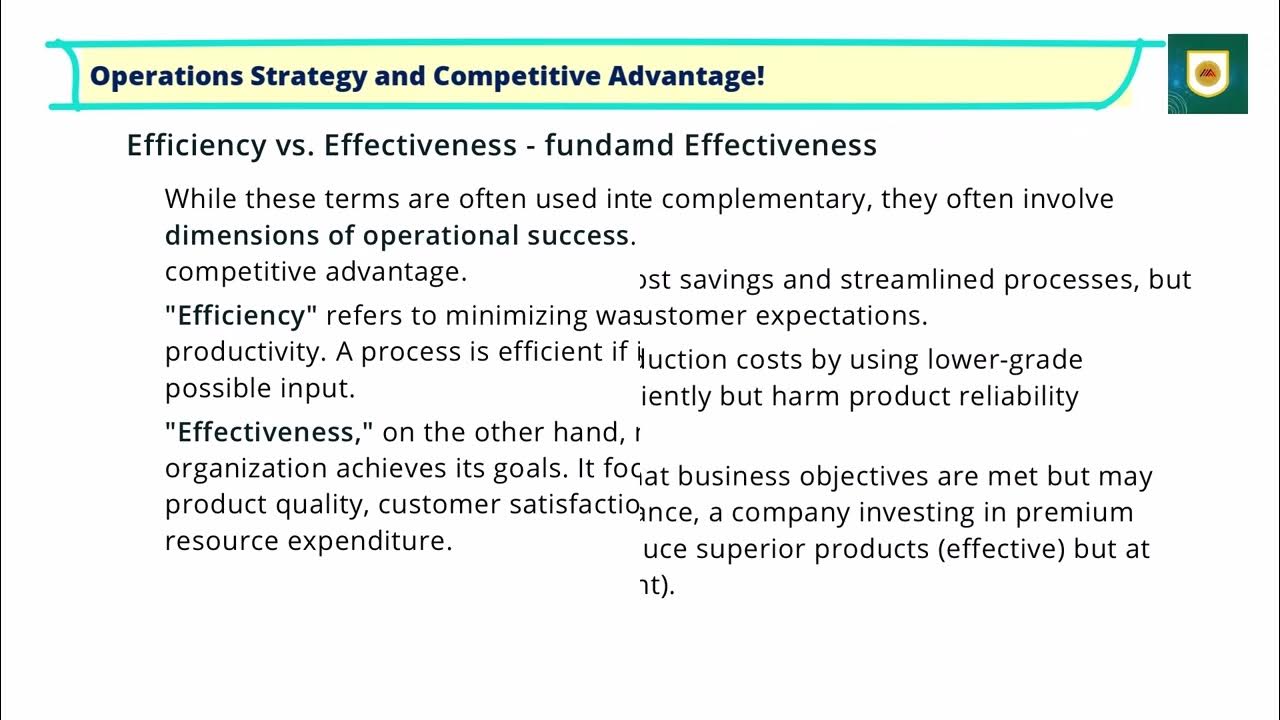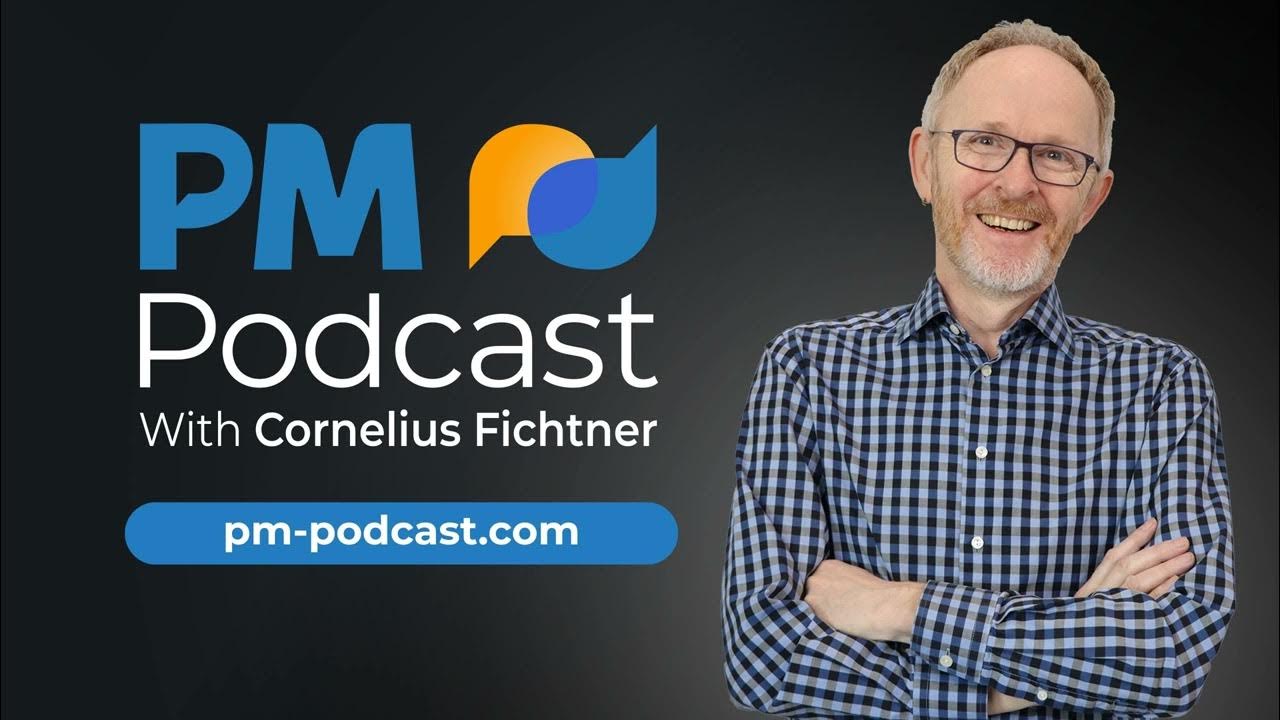Culture as Competitive Advantage: Joanne Smith at TEDxSanLuisObispo
Summary
TLDRIn this talk, the speaker emphasizes the critical role of culture in driving organizational advancement and long-term success. Using the example of Delta Airlines, the speaker highlights how aligning company culture with business strategy can create a sustainable competitive advantage. Key points include the importance of employee engagement, listening to feedback, and fostering a culture that supports change. The speaker underscores that, while competitors can replicate products or services, they cannot duplicate a company’s culture, making it an invaluable asset. Ultimately, a strong, purpose-driven culture is key to achieving breakthrough performance and business success.
Takeaways
- 😀 Organizational advancement requires unblocking the ability to innovate and perform continuously.
- 😀 Culture is the key differentiator in driving long-term business success and performance.
- 😀 Competitors can match your products, services, and even reverse-engineer processes, but they cannot replicate your unique culture.
- 😀 Strong company culture must be purposefully nurtured and continuously protected to maintain its competitive advantage.
- 😀 Aligning your corporate culture with your business strategy and leadership is crucial for breakthrough performance.
- 😀 Delta Airlines' turnaround story highlights the power of culture in a company’s recovery from financial distress.
- 😀 In the 1990s, Delta sacrificed its culture for cost-cutting measures, which led to bankruptcy. Refocusing on culture was key to recovery.
- 😀 Communication and listening to employees are vital during times of crisis, helping businesses adjust strategies and rebuild culture.
- 😀 Employee engagement and pride in the company can lead to extraordinary efforts, as demonstrated by Delta's employees during a hostile takeover bid.
- 😀 Happy employees lead to happy customers, which in turn leads to happy shareholders—creating a virtuous circle of success.
- 😀 Building a culture that supports change, rather than impedes it, is essential for long-term business sustainability.
Q & A
What is the main focus of the speaker's presentation?
-The speaker focuses on the importance of organizational culture in driving business success, particularly in the airline industry. They discuss how culture can be a competitive advantage and how aligning culture with business strategy leads to sustainable performance.
Why is culture considered a unique competitive advantage?
-Culture is a unique competitive advantage because it cannot be replicated by competitors. While competitors can copy business strategies, steal ideas, or reverse engineer processes, they cannot duplicate the culture of an organization, which is deeply tied to its values and beliefs.
How did the airline industry perform financially according to the speaker?
-The airline industry has faced significant financial struggles, with the speaker mentioning that the industry has not made any profits since Orville Wright. The financial instability has been a persistent issue, characterized by bankruptcies and deteriorating customer service.
What role does culture play in the turnaround of Delta Airlines?
-Culture played a pivotal role in Delta's turnaround by refocusing on shared values and employee engagement. After facing financial distress, Delta restored its cultural values, engaging employees through face-to-face communication and fostering a sense of pride and belonging, which helped improve customer service and profitability.
What is meant by 'organizational advancement' in the context of the presentation?
-Organizational advancement refers to the process of improving a company's performance, innovation, and long-term success by fostering a culture that supports collaboration, shared values, and alignment between business strategy and leadership.
How did Delta employees contribute to the company's culture during difficult times?
-During challenging times, Delta employees contributed to the company’s culture by engaging in activities that aligned with their passions, such as volunteering for charitable causes, creating employee networks, and demonstrating unity during a hostile takeover attempt. This helped build employee morale and re-establish a sense of pride in the company.
What does the speaker mean by the term 'rules of the road' in relation to Delta’s culture?
-The 'rules of the road' refers to the foundational principles of how Delta employees were expected to treat each other, emphasizing respect, honesty, and good judgment. These principles were part of the company's original culture and were crucial to its identity, even after the founder’s time.
How did Delta's leadership approach the challenge of rebuilding culture during bankruptcy?
-During bankruptcy, Delta’s leadership focused on re-establishing culture by directly engaging with employees. They conducted face-to-face meetings with 45,000 employees, apologized for past mistakes, listened to employee feedback, and launched initiatives like employee affinity networks to reconnect employees with the company's values.
What is the relationship between happy employees, happy customers, and happy shareholders, according to the speaker?
-The speaker emphasizes a virtuous circle where happy employees lead to happy customers, which in turn leads to happy shareholders. This relationship is central to driving sustained business success, as engaged employees contribute to better customer experiences, which ultimately benefit the company's financial performance.
What four principles does the speaker outline for businesses to follow in building a successful culture?
-The four principles are: 1) Build a culture around employees, making them the central asset; 2) Align business strategy with culture, integrating employees' passions into business processes; 3) Hire people who fit the organization's values and culture; 4) Routinely ask employees how the culture is being supported and make improvements based on their feedback.
Outlines

This section is available to paid users only. Please upgrade to access this part.
Upgrade NowMindmap

This section is available to paid users only. Please upgrade to access this part.
Upgrade NowKeywords

This section is available to paid users only. Please upgrade to access this part.
Upgrade NowHighlights

This section is available to paid users only. Please upgrade to access this part.
Upgrade NowTranscripts

This section is available to paid users only. Please upgrade to access this part.
Upgrade Now5.0 / 5 (0 votes)





